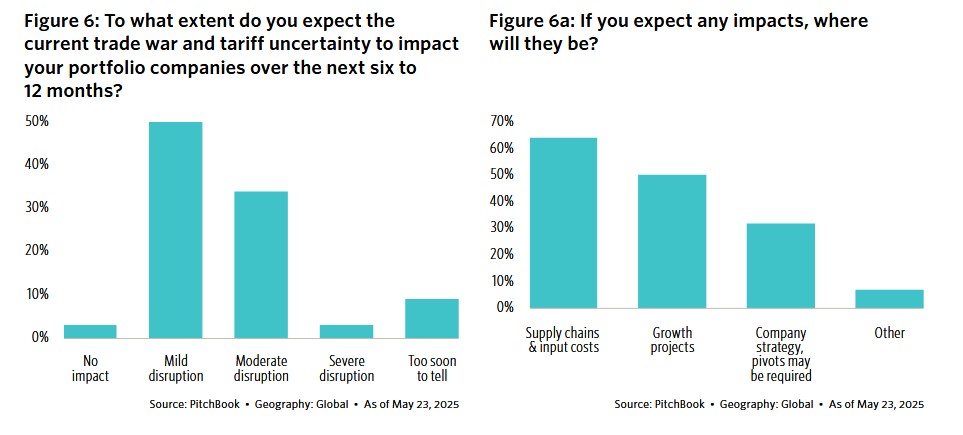Alt Investments
Fewer VC Players Predict More Fundraising, Caution Rises – Survey
.jpg)
There's more caution around the venture capital sector globally than there has been, the PitchBook report says. Among the details, Europe is winning more attention.
A survey of 32 venture capital investors from around the world by
PitchBook,
a private market research and analysis firm, finds that 38
per cent of them expect VC funding to rise over the next year,
falling from 58 per cent taking that view in the second half of
2024.
The figures suggest that economic turmoil associated with US
tariffs and geopolitical stresses has taken
its toll.
The data from Pitchbook’s H1 VC Tech Survey shows
that 43.3 per cent of respondents said their VC firms are located
in Europe; 36.7 per cent said the US, 10 per cent said China; 3.3
per cent said the Middle East and Africa; 3.3 per cent said
Oceana, and 3.3 per cent said Latin America.
“After years of momentum driven by the post-Covid boom, the
industry is returning to caution. Capital is less abundant: now
with fewer exits on the horizon investors are looking to back
companies that can go the distance and are wary of fast growth
disjointed from any sustainable value,” Tom Henriksson, general
partner at OpenOcean, an early-stage venture firm, said.

Source: Pitchbook H1 VC Tech Survey.
Despite 84 per cent of investors bracing for at least mild
disruption from recent trade tariffs, the sector is not folding
– it is recalibrating, PitchBook said. Some 53 per cent of
investors are still actively hunting for deals) even as limited
partners grow more risk averse – a shift toward domestic
“tech sovereignty” is underway.
The data comes at a time when investment houses continue to
regale wealth managers, private banks, family offices and other
players about the benefits of VC, private equity, private credit,
forms of real estate and infrastructure. (See an
example here
from Hamilton Lane.)
The PitchBook report said fintech leads the way in VC activity –
with some of the AI hype translating into real-world action;
healthcare and enterprise technology are vigorous; transport and
logistics are more “stable” in behaviour.
"Looking ahead, 60 per cent of respondents combined still plan to
raise another fund within two years, but a growing contingent is
pushing timelines to three-to-five years or opting out
altogether, hinting at a consolidating market," the report
said.
"Regionally, Europe leads as the most attractive destination outside of the US, drawing investment from 48 per cent of respondents. Taken together, the data suggests an industry that remains active and opportunity seeking, but with sharpened caution, a shift in timelines, and a growing emphasis on defensibility and discipline," the report said.
Tariff effect
The report said 84 per cent of survey respondents expect at least
mild to moderate impact from the US tariff announcements; 64 per
cent expect higher supply chain costs and 50 per cent predict
slowed growth. The manufacturing and semiconductor/hardware
segments were deemed the most vulnerable to tariff
disruption.
Artificial intelligence
Respondents said the top blocker to AI adoption is a lack of
clear use cases – the cause cited by 45 per cent of
respondents – followed by workforce skill gaps and high
implementation costs. The number of respondents with regulatory
concerns over AI eased from 55 per cent to 39 per cent, and
bullishness on generative AI stabilised, with 44 per cent of
respondents more upbeat and 45 per cent reporting no change in
sentiment.